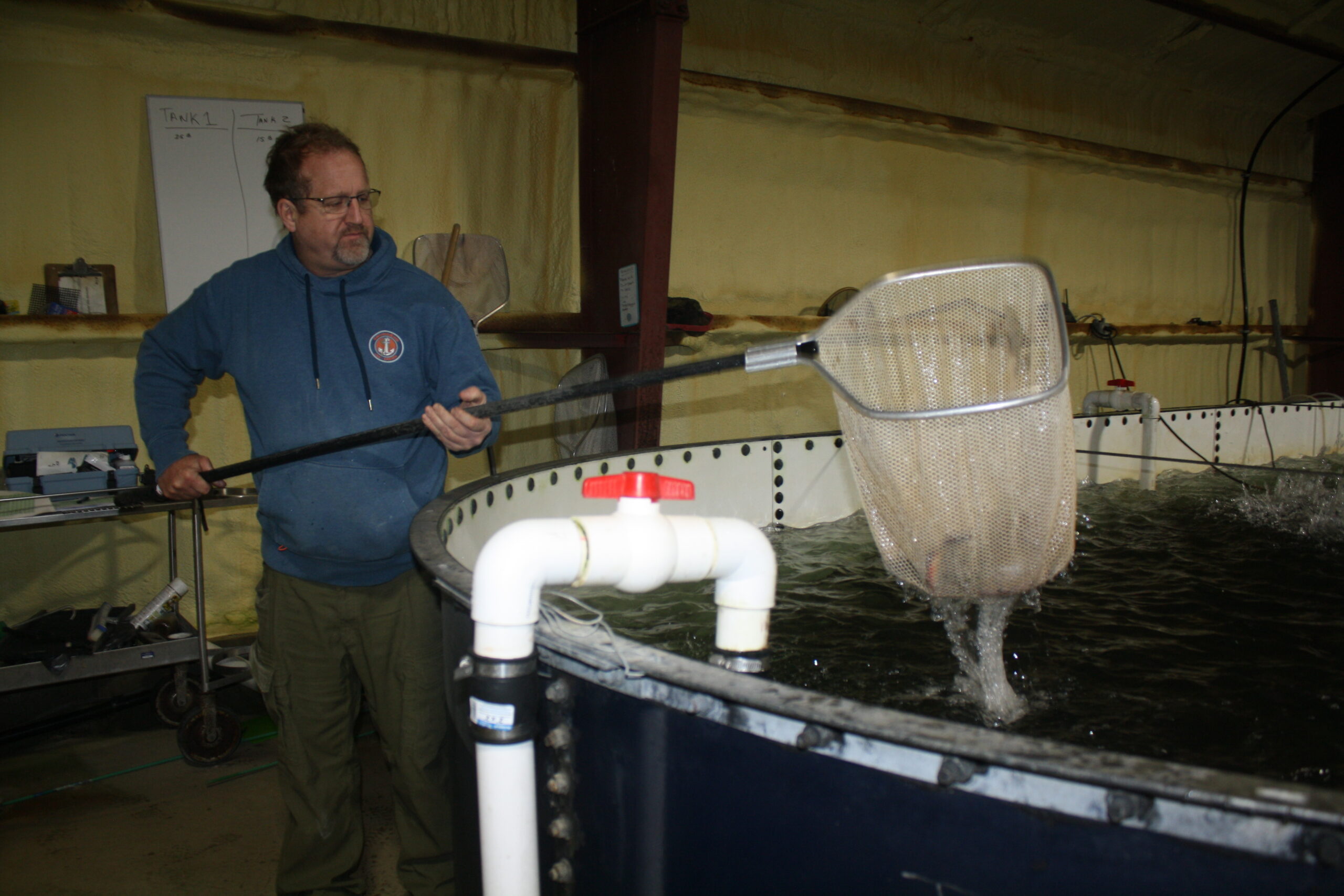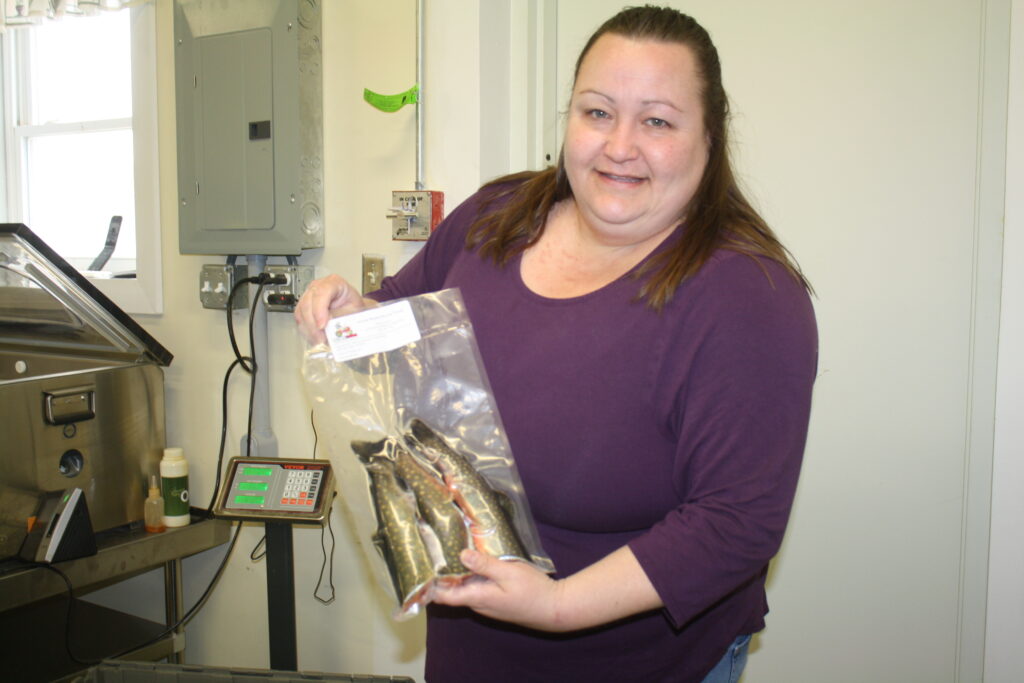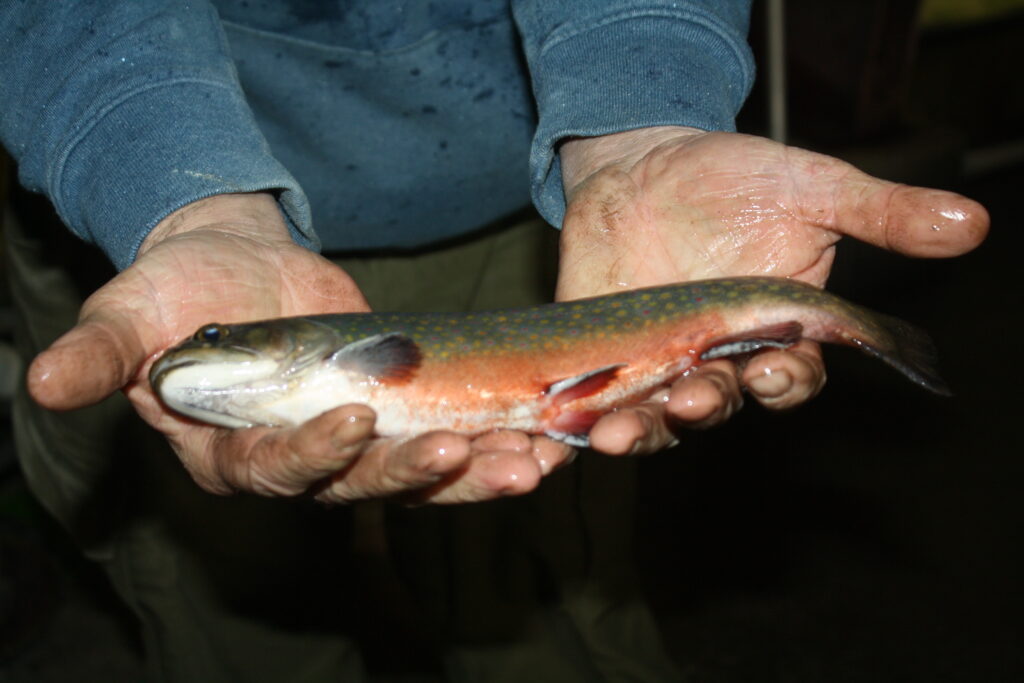
CARIBOU, Maine – A major expansion is expected to create more profitable opportunities for a Maine tribe raising fresh brook trout in Aroostook County.
This summer, Mi’kmaq Farms plans to break ground on a new 12,000-square-foot hatchery near their farm store on Presque Isle Road in Caribou, quadrupling the size of their current 3,000-square-foot hatchery.
The new facility will include four 18,000-gallon tanks, and will more than double the capacity of the current hatchery’s two 16,000-gallon tanks, in which brook trout are raised from eggs to fully grown fish ready for consumption.
After opening the hatchery in 2015, the facility reached full capacity only three years later. The fish have become a crucial commodity for the tribe, valued at around $30,000 last year, with increased demand coming from restaurants and grocery stores across the country. But the tribe, which has around 1,500 members, cannot fully enter the national market without a larger facility, said Farm Manager Mike Smith.
“We’ve gotten calls from businesses in New York, Boston, Dallas and California, but we don’t have the capacity [to grow and ship that much brook trout],” Smith said. “We’re over capacity now.”
The estimated $5.5 million project will be funded mostly through a grant from the federal Economic Development Administration and private donors. The initial $3.9 million price tag has risen in the past two years because of increased costs for construction and materials, said Shannon Hill, the tribe’s environmental health director.

Construction was originally slated for 2023 but increased costs prompted the tribe to raise more funds, Hill said.
After they select a contractor, the tribe hopes to break ground in June and open the facility in time for their next batch of brook trout eggs in January. The larger hatchery will allow the tribe to employ at least four additional people for the fish operations, which currently only involves Smith and a part-time tank technician.
Last year, Mi’kmaq Farms harvested 3,000 pounds of brook trout, most of which was sold in the farm store, at local markets and to Maine soil and water conservation districts for recreational pond stocking, and donated to Wabanaki food banks. The hatchery could be on track to produce 5,000 pounds this year, Smith noted.
“We could have 12,000 pounds a year once we have the new hatchery,” Smith said. “Shipping to outside markets is very costly, but if we can pack larger quantities, the shipping costs could be more realistic.”
But brook trout mean more to the Mi’kmaq Nation than the money generated. The hatchery started as a way for tribal members to strengthen food sovereignty, promote healthy eating and bring back a local diet stable.
Historically, the Mi’kmaq people always fished and ate brook trout. But in recent decades, many waterways near tribal residents have undergone fishing restrictions due to toxins found within fish tissue, Hill said.
The brook trout have become popular with local residents and visitors who are seeking out healthier food options, Hill noted.
“In today’s day and age, people are looking for alternatives that are organic, fresh and chemical free to put into their diets,” Hill said. “People like knowing that there are no toxins [in the brook trout].”
As with the future hatchery, the current one utilizes racetrack shaped tanks that pump in oxygen and recirculate fish waste back into a system that workers will empty yearly to use as plant fertilizer for farm crops. When the hatchery opened in 2015, Mi’kmaq Farms was one of the first facilities in North America to feature that design.

Mi’kmaq Farms will keep the two tanks at the current hatchery for either new brook trout eggs that come in or for a new aquaculture crop. The hatchery expansion will also complement other growth happening at the farm.
To meet increased local demand, the farm doubled their outdoor crops from four to eight acres this year, featuring a variety of vegetables and fruits, including peppers, tomatoes, beet greens and blueberries, and they will add apples and strawberries later in 2024.
A new 2,100-square-foot greenhouse, finished last fall, grows flowers and more vegetables. The farm also plans to grow Christmas trees and continue producing honey in its bee hives. In June, a newly renovated Mi’kmaq Farms store will reopen and sell the farm’s crops and Mi’kmaq artisans’ work, including baskets and jewelry.
“We’ve had a lot of regulars, both tribal and non-tribal community members, who like to stop in,” Hill said. “We welcome and would encourage everyone to come by.”







